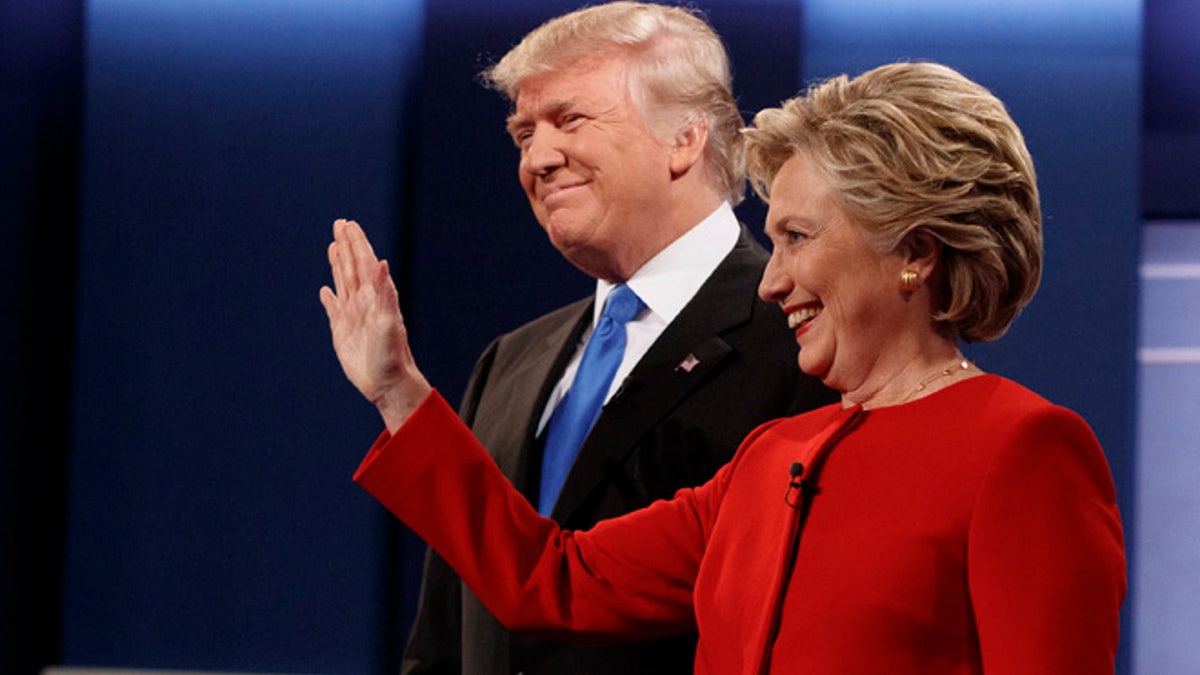
AP (Donald Trump and Hillary Clinton)
One of the most profound statements about this election was made last week by Governor Nikki Haley of South Carolina. Acknowledging that the campaign had ‘turned her stomach’ (I don’t think she’s alone in that), the popular Republican argued that when it comes to deciding who to actually vote for, “This is no longer a choice for me on personalities, because I’m not a fan of either one. What it is about is policy.”
She reluctantly concluded that “the best person based on the policies and dealing with things like Obamacare still is Donald Trump...That doesn’t mean it’s an easy vote, but it does mean that I’m watching out for the people of South Carolina and I’m watching out for the people of this country and that’s who I will be voting for on Nov. 8.”
Gov. Haley is right that neither candidate has made this an easy vote -- even for their supporters. Clinton has confirmed all the worst fears people had about her: the lying, the corruption, the constant political calculation and lack of deep conviction; the jaw-dropping arrogance and sense of entitlement displayed by her and her acolytes in America’s insular ruling elite; their snooty and divisive contempt for working people and anyone who doesn’t share their ideological worldview.
On the other side of the fence, Donald Trump has tested the loyalty of even his most fervent supporters with a string of offensive remarks, displays of almost crazed indiscipline, self-generated distractions from his fundamental argument for change, and revelations about his attitude to women that nobody could possibly defend.
What is the best way to think about the 2016 election? Is it not acceptable to vote, in good conscience, for a candidate on the basis of the likely consequences of their election on people’s real lives, rather than some nebulous impact on our ‘culture’?
The question for the responsible voter is: how to weight these questions of character alongside questions of policy and the likely real-world impact of voting for one or other of the candidates?
For the left, the choice is clear, and was perhaps best expressed in a New York Times headline: ‘How Could Anyone Vote for Trump?’ Most Clinton supporters cannot give you a positive reason to vote for their candidate other than the fact that she is not Donald Trump. The Clinton campaign has really made only one argument in this election: that Trump’s personal character traits should disqualify him from the presidency.
They do not attack his tax plans, or his support for school choice, or any other policy position. They just say that voting for Trump means endorsing sexism, racism and...well, you heard the ‘deplorables’ speech - you get the picture. The election, according to the Democrats, should be about the ‘message’ that a Trump vote would ‘send’ rather than what a President Trump would actually do.
But is that really the best way to think about the election? Is it not acceptable to vote, in good conscience, for a candidate on the basis of the likely consequences of their election on people’s real lives, rather than some nebulous impact on our ‘culture’?
All this reminds me of a concept first proposed by psychologist Abraham Maslow in 1943: the Hierarchy of Needs. The idea is that human beings prioritize their needs in a fairly logical way. The first priority is physical -- the need for things like food and shelter. Once these basic requirements for survival are met, people look for other things that make life worthwhile, like love and a sense of belonging. Right at the top of Maslow’s ‘Hierarchy’ is what he describes as ‘Self-actualization’ -- the need to define yourself in a way of your choosing.
It seems to me that this is why the rich coastal elites are backing Hillary and have turned on Trump. They can afford a Clinton presidency, whatever outcomes it delivers. They don’t really care whether a President Clinton would grow the economy a little, a lot, or not at all -- they will do just fine.
But for the half of all Americans who still, according to official statistics earn less than in 1999, such virtue-signaling is a luxury. Their basic needs are not being met, and they desperately need change, even if it's delivered by someone who is a long way from being their perfect candidate of 'Self-actualization'. It really matters to them what happens to the economy, jobs, the cost of healthcare and many other practical matters, where the Trump policy agenda -- especially if allied with a GOP-controlled Congress -- could bring positive forward movement after years of stagnation, hardship and anxiety.
How dare anyone tell these Americans that they’re wrong -- or worse, immoral -- to weigh up the choice that way? As Nikki Haley made clear, you don’t have to agree with everything Donald Trump says or does to conclude that he would make the most positive, practical difference in the real lives of real people.
In the end, isn’t that what elections are supposed to be about?








































